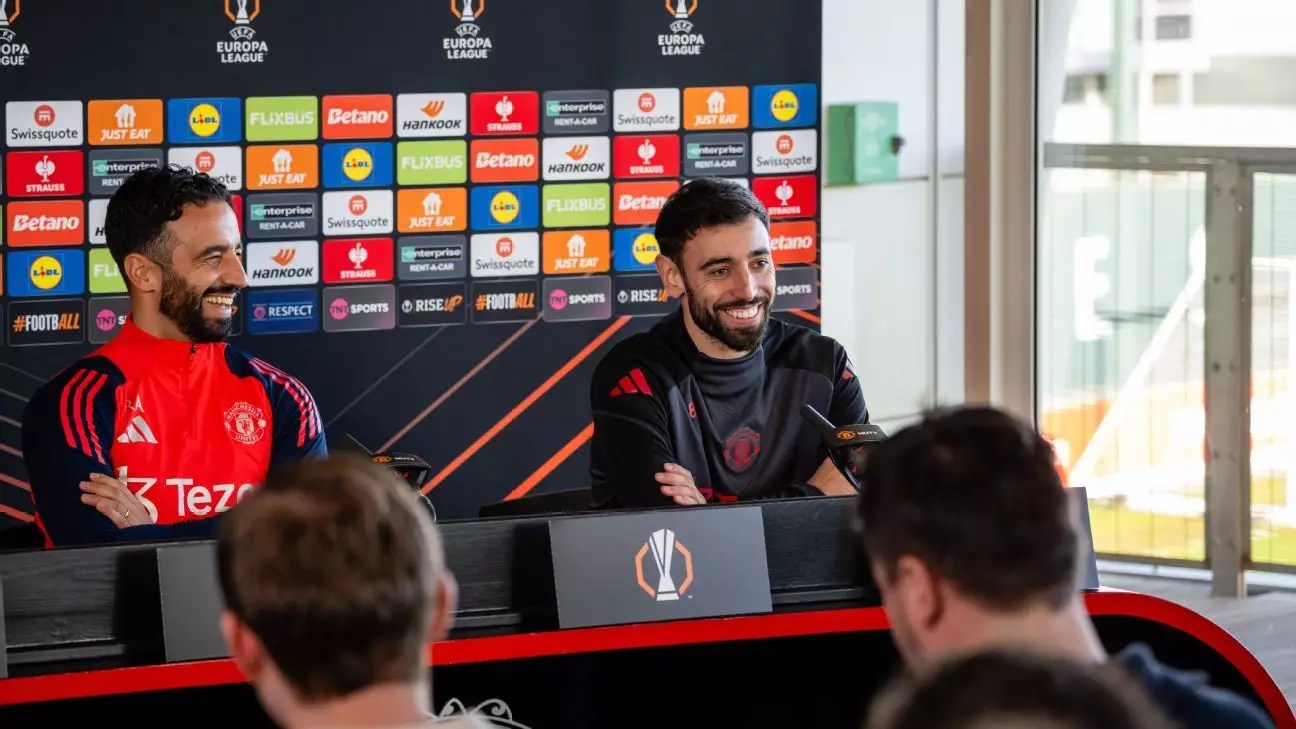The world of football is often defined by its dynamism, with clubs undergoing tactical and managerial changes that can significantly impact team performance. Recently, Bruno Fernandes, the captain of Manchester United, emphasized the crucial role he plays in aiding his teammates to adapt to the tactical methodologies of newly appointed coach Ruben Amorim. Following a lackluster 1-1 draw against Ipswich—which marked Amorim’s debut—Fernandes expressed the inherent challenges the players face as they acclimatize to a fresh system. This adaptation is not merely about learning new plays; it’s a process that requires a collective effort and a firm commitment to learning.
Bruno Fernandes: On-field Coach
Fernandes’ approach highlights the multifaceted responsibilities of a captain—one who seldom leaves the pitch to simply rally his teammates but rather leads by example through his understanding of the game. “I absorb everything from every position,” he stated, underscoring his dedication to grasp the nuances of his team’s strategy. This proactive mindset is critical in high-pressure matches where the manager’s voice may not reach every player amidst the cacophony. Fernandes aims to facilitate communication on the field, understanding that being a leader necessitates an intimate knowledge of his teammates’ roles and responsibilities. His efforts reflect a commitment not just to personal performance but to collective success.
The abrupt dismissal of former manager Erik ten Hag serves as a poignant reminder of the fragile nature of success in professional sports. Fernandes acknowledged this shift when he spoke about the need for accountability among players. “If you change a manager mid-season, it is because things are not going as you want,” he affirmed. Such transitions often lead to introspection—players must analyze their contributions to the team’s struggles rather than placing the blame solely on the coach.
Furthermore, Fernandes’ expression of remorse towards Ten Hag encapsulates a sense of unity among players, acknowledging their share in the overarching failure that necessitated a managerial change. This collective mindset is vital for Manchester United as they move forward under Amorim’s guidance. It reflects an understanding that team dynamics are intrinsically linked to individual performances, thereby fostering a culture of responsibility.
As Manchester United prepares to face Bodo/Glimt in the Europa League, the stakes are high; the club seeks to regain its footing in a season that has been anything but smooth. The forthcoming matches will test the team’s adaptability and resilience when integrating Amorim’s tactical vision. Fernandes’ vocal leadership and tactical acumen will be instrumental in navigating the uncertainties ahead. His role as a coordinator on the pitch will be imperative as the squad endeavors not only to learn but to embody the new philosophy that Amorim aims to instill. The path may be laden with challenges, but with committed leadership and collective responsibility, Manchester United could emerge transformed, ready to tackle the demands of the season.


Leave a Reply